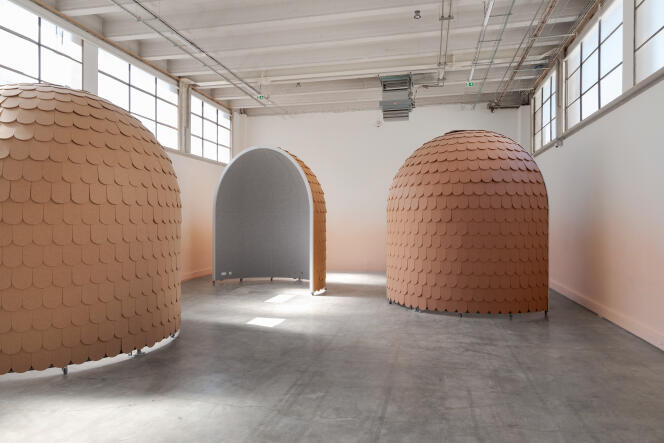


"Bien mieux" ("Much better"): This is the name of an innovative offer, integrated into France's Pass Culture, that, in October, the Palais de Tokyo will introduce to young people aged 15-22 suffering from emotional difficulties. Helping people to feel better is also Hamo's aim, the outreach department inaugurated by the Paris art center on September 15. Featuring welcoming spaces in shades of blue and powder pink, honeycomb shapes lined with felt and sound-absorbing acoustics, everything in the staging created by the eclectic Freaks Architecture agency has been designed to put audiences at ease, particularly – and this is the art center's current priority – those suffering from psychological or neurological disorders.
"We prefer to use the term neurodiversity," said Guillaume Désanges, president of the Palais de Tokyo, "of psychological identities that need to be accompanied and cared for rather than corrected." Above all, the aim is to avoid the language of illness or disability, words that label and confine. "The aim is not to cure, but to empower, outside of the medical framework," said Yoann Gourmel, director of audiences and cultural programming. When it comes to relieving depressive episodes, discouraging suicidal thoughts and supporting people with autism spectrum disorders, the art world does not claim to replace medicine but, more simply, to play its part.
Nathalie Bondil, who has been leading a seminar on museum therapy at the Ecole du Louvre for the past three years, puts it quite naturally. "It's obvious; aesthetic emotion is inherent to our health," she said. Now the director of the Institut du Monde Arabe museum, Bondil was one of the first curators to have launched an "art and health" program, back in 2012 ,when she was in charge of the Montreal Museum of Fine Arts. "Until now, museums have served tourism, the economy and diplomacy, so it's only natural that they should contribute to public health," she added. While director at the Montreal Museum, she was interested in MoMA's initiative, which, from 2007 to 2014, welcomed Alzheimer's patients to the landmark New York museum. Since then, projects to accommodate patients in psychological distress have increased in the UK and Belgium.
In France, the Louvre and Louvre-Lens have already forged innovative partnerships with the healthcare sector. More recently, in June, Paris Musées followed suit by launching the Bulle d'Art program with Assistance Publique-Hôpitaux de Paris (the university hospitals trust in Paris, AP-HP). "Everything changed with Covid-19," said Bondil. Depressive disorders soared by 25%, according to the World Health Organization. The situation is even more alarming among young people: In France, over the last two years, psychiatric consultations have jumped by 30% among students. The demand for psychiatric care is soaring, but supply is notoriously inadequate.
You have 66.62% of this article left to read. The rest is for subscribers only.
